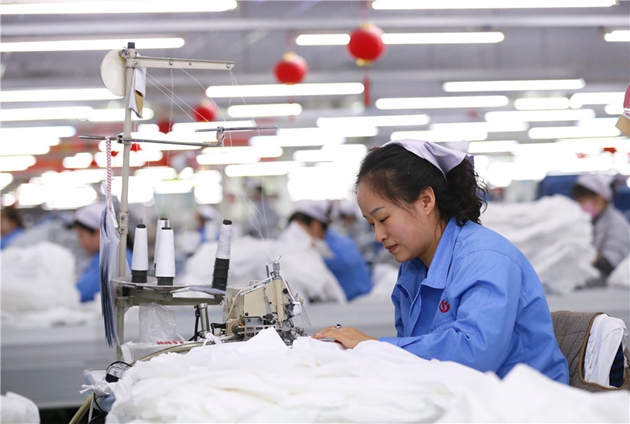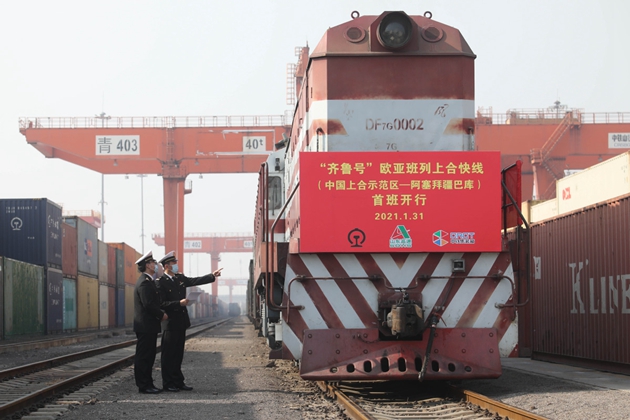Shandong Province has made persistent efforts to keep foreign trade and investment stable amid the epidemic outbreak, according to local authorities.
Official statistics showed that the actual utilization of foreign capital in Shandong last year reached $17.65 billion, reaching a year-on-year growth of 20.1 percent.
In 2020, Shandong launched a series of measures and policies to ensure the smooth operation of foreign trade industrial chains and supply chains, and optimize the local business environment to strengthen foreign businesses' confidence in long-term investment and operation in the province.

An employee works at a textile plant in Qingdao, Shandong province. [Photo by Liang Xiaopeng/For China Daily]
Shandong officials said that the province awarded 137 million yuan ($21.22 million) to 21 large foreign-funded projects in 2020 and held a number of high-profile business promotional activities via online and offline channels, which facilitated the signing of 237 major foreign-funded projects.
Over the past year, Shandong has been advancing the system and mechanism reform of development zones to bring fresh impetus to the local economy.
Official data show that the actual utilization of foreign capital in 160 development zones in Shandong hit $13.53 billion last year, accounting for 76.7 percent of the province's total.

Customs officials in Qingdao, Shandong province, check a freight train bound for Azerbaijan. [Photo by Xie Hao/For China Daily]
The province also issued 18 policies and measures to support the development of the China-Shanghai Cooperation Organization Demonstration Zone for Local Economic and Trade Cooperation in Qingdao, which attracted five projects with investments by Fortune 500 companies in 2020.
The China (Shandong) Pilot Free Trade Zone has also further facilitated its high-level opening-up and boosted high-quality growth through deeper reforms, with the actual use of foreign capital amounting to $2.21 billion.
A total of 243 special teams have been set up by local officials to offer tailored services to more than 2,000 foreign trade enterprises and more than 1,000 foreign-funded enterprises. Focusing on procedures for customs clearance, foreign exchange and tax rebates, the services teams have contributed greatly to the promotion of cross-border trade facilitation and ensured the stability of industrial and supply chains amid the pandemic.




